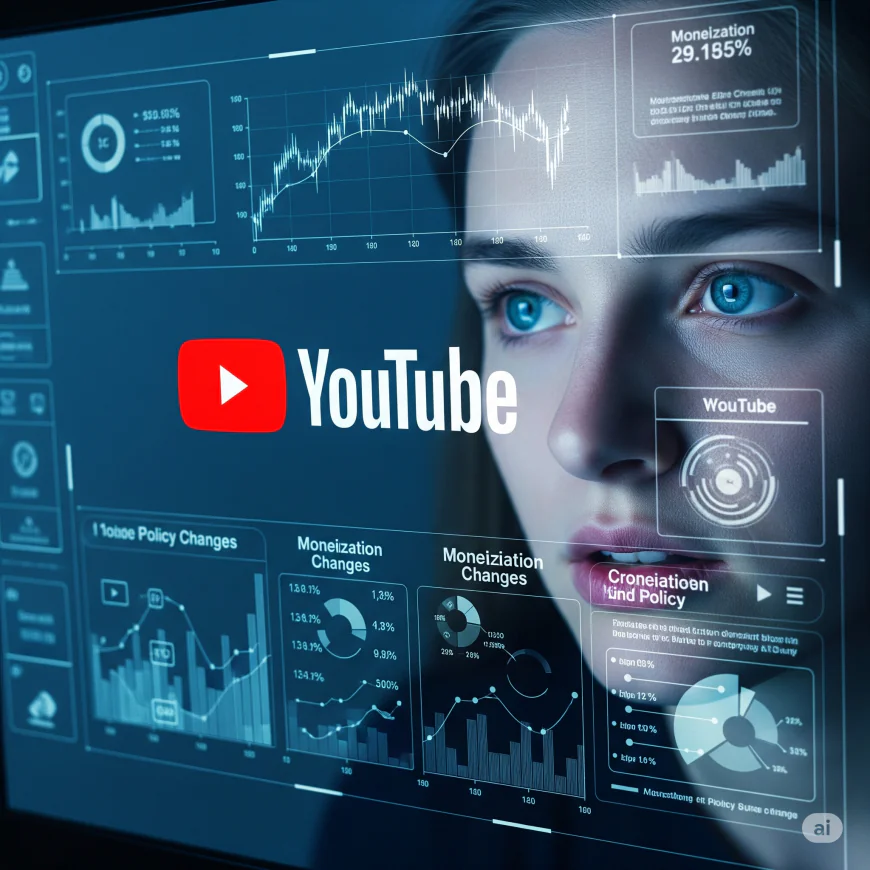YouTube's New Monetization Policy 2025: What Creators Need to Know
Discover YouTube's updated monetization policies taking effect July 15, 2025, focusing on originality, authentic content, and the crackdown on repetitive or mass-produced videos. Learn how these changes impact creators and what you need to do to stay monetized.

YouTube's Evolving Monetization: A Focus on Originality and Value
YouTube is implementing significant changes to its monetization policies within the YouTube Partner Program (YPP), effective July 15, 2025. These updates are primarily aimed at promoting authentic, high-quality content and cracking down on repetitive, mass-produced, and low-value videos. Creators need to understand these shifts to ensure continued eligibility for monetization.
What's Changing and Why?
The core of YouTube's new policy is a stricter interpretation of "original and authentic" content. The platform is moving to filter out videos that primarily reuse existing material with minimal transformation or those that are templated and mass-produced. This includes:
-
Repetitive Content: Videos that reuse formats, scripts, or styles without adding distinct value, such as basic reaction mashups, remixes with minimal editing, or compilations lacking original commentary.
-
Mass-Produced/Inauthentic Content: This encompasses content that appears factory-made, utilizes auto-generated voices or subtitles without additional commentary, or is superficially edited (e.g., color changes, cropping, filters) without adding real value.
-
AI-Generated Content: While AI tools are not outright banned, YouTube will scrutinize content heavily reliant on AI. Creators must add meaningful human value, analysis, interpretation, or customization to AI-generated elements to remain monetizable. Purely automated clips reading text over stock footage are likely to be demonetized.
These changes are a response to the proliferation of low-effort content and an effort to protect genuine creators, fostering a community that prioritizes educational and entertaining content with original and creative approaches.
Eligibility Requirements: What Stays the Same?
The fundamental requirements for joining the YouTube Partner Program largely remain unchanged:
-
1,000 Subscribers: Channels still need to reach this milestone.
-
4,000 Public Watch Hours (Long-Form Videos): Accumulated within the last 12 months.
-
10 Million Valid Public Shorts Views: Achieved within the last 90 days (an alternative to watch hours for Shorts creators).
However, even if these numerical thresholds are met, YouTube's review process will become more rigorous, heavily weighing the originality and authenticity of the content. Channels that meet the numbers but rely on mass-produced or repetitive content risk rejection from the YPP or removal if already enrolled.
Impact on Different Content Types
-
Long-Form Video Monetization: The traditional 55% creator share of ad revenue from long-form videos remains in place for eligible content. The focus will be on ensuring the content itself adheres to the new originality standards.
-
Shorts Monetization: Shorts monetization, which became formalized in 2023 with a 45% creator revenue share from ads in the Shorts feed, will also be subject to these stricter originality rules. Shorts that heavily reuse content or are templated without significant added value will face demonetization.
-
Fan Funding and Other Revenue Streams: Features like channel memberships, Super Chat, Super Stickers, and Super Thanks (with a 70% creator share) are less directly affected by the originality policy as they rely more on direct audience support and engagement with the creator's personality. YouTube is also encouraging creators to diversify revenue streams beyond ads, exploring options like shopping integrations and direct audience funding.
What Creators Need to Do
To adapt to these new policies and ensure continued monetization, creators should:
-
Prioritize Originality: Focus on creating unique content that showcases your own voice, analysis, and perspective.
-
Transform Reused Content: If you use third-party material, ensure you significantly transform it by adding substantial commentary, critical review, creative editing, or a unique storyline. Simple re-uploads or minimal edits will not suffice.
-
Add Value to AI-Generated Content: If utilizing AI tools, ensure you are adding meaningful human value, interpretation, or customization to the output.
-
Review Your Content Strategy: Audit your existing content, especially highly viewed videos, to ensure they align with the updated guidelines.
-
Optimize Metadata: Ensure your video titles, descriptions, and thumbnails accurately reflect your content and do not employ deceptive "clickbait" tactics.
By focusing on genuine, engaging, and original content, creators can navigate these policy changes successfully and continue to thrive on the platform.









